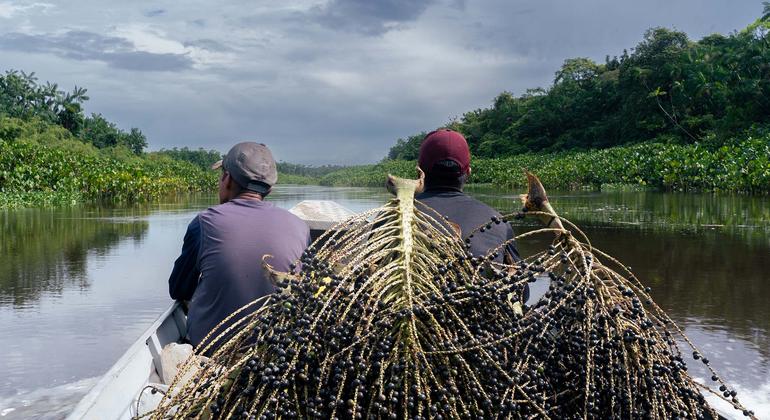Sure! Here’s the translation to American English:
—
The Amazon has taken center stage this week in the international debate on food security and climate change, as part of the “Amazon Week: Sustainable Rural Development and Agri-Food Systems.” This event, organized by the Brazilian government in collaboration with the Food and Agriculture Organization of the United Nations (FAO), brought together government representatives, international organizations, indigenous communities, farmers, and civil society members in Manaus for three days.
The meeting, structured under the Brazil-FAO International Cooperation Program, was held with an eye on COP30, set to take place in November 2025 in Belém. Máximo Torero, chief economist and FAO regional representative, highlighted the potential of the Amazon to serve as a “laboratory” for new economic models, emphasizing the need for investments that recognize the importance of family farming and traditional communities, which currently manage 85.4% of agricultural holdings in the region.
Discussions focused on the alarming levels of food insecurity in urban Amazonian areas, where food scarcity affects a large number of households. Lilian Rahal, secretary of Food Security at Brazil’s Ministry of Social Development, reaffirmed the Brazilian government’s commitment to ensuring the right to food as a fundamental human right. Additionally, South-South cooperation was presented as a key topic, emphasizing collaboration between Brazil and the FAO on nutritional policies that have served as examples for the Global South.
Ruy Pereira, ambassador and director of the Brazilian Cooperation Agency, also spoke about the strategic relevance of the Amazon in the fight against hunger and the conservation of biodiversity. During the event, parallel forums took place, such as the Specialized Meeting on Family Farming from Mercosur, which discussed specific policies for small producers, and a Regional Technical Dialogue on Amazonian Bioeconomy, featuring participation from governments, development banks, businesses, and indigenous leaders.
The event concluded with the creation of a roadmap focused on six key areas: markets and marketing, public food procurement, the connection between climate and agri-food systems, circular economy, financing and investment, and governance. Through this approach, Brazil and the FAO aim to establish the Amazon as a space for cooperation and innovation, vital in the fight against food insecurity and climate change on a global scale.
—
If you need further adjustments, just let me know!
Referrer: MiMub in Spanish










